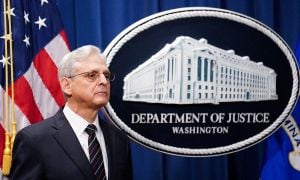Australia is making waves on the global stage with its sweeping new legislation aimed at regulating children's access to social media. Dubbed the Online Safety Amendment (Social Media Minimum Age) Bill 2024, this law is unprecedented and sets the minimum age for social media usage at 16. The law, having recently sailed through the House of Representatives, mandates social media platforms like Instagram, Facebook, TikTok, and Reddit to block users who fall below this age limit. This ambitious move has sparked intense discussions about the balance between protecting youth and preserving individual liberties.
The intent behind the law is clear: safeguard young Australians from the often harsh online reality. Social media is widely recognized as having detrimental effects on children's mental health, with rising concerns over cyberbullying, harmful content, and addictive behaviors. Recent studies highlighted by the Pew Research Center indicate alarming trends: teens report feeling anxious, depressed, and grappling with body image issues largely influenced by what they see and experience on these platforms. This digital culture of comparison—driven by likes, comments, and the pervasive fear of missing out (FOMO)—creates pressure on adolescents to conform to unrealistic standards.
Australian lawmakers are presenting this ban as both necessary and compassionate. Proponents believe it could significantly diminish exposure to harmful influences, making it harder for bullies to target victims and reducing the prevalence of social media addiction and its associated negative effects. Some experts cite testimonies from former tech insiders like Frances Haugen, who revealed the ways algorithms are fine-tuned to keep users, especially minors, engaged for as long as possible. The narrative framing this law paints it as almost paternalistic—guarding children from entities intent on exploiting their fragility.
But as with many regulatory efforts, the devil lies within the details. The implementation of these regulations hinges on effective age verification systems. While methods are still being finalized, ideas range from using government-issued ID checks to employing sophisticated AI facial recognition technology. These measures raise serious eyebrows and questions. Just how can authorities guarantee compliance? Can parents reasonably be expected to oversee their children’s digital activities? And aren't tech-savvy kids likely to find ways to bypass these restrictions?
Enforcement will be no picnic either. Critics argue the hefty costs associated with ensuring compliance might lead to unintended collateral damage, particularly for smaller content creators and startups who could struggle under these new burdens. There's also skepticism about whether government intervention is truly the best route. Many believe teaching digital literacy and empowering families to guide children through their online experiences would be more beneficial.
There’s another layer of complexity to the discussion: the report suggests exemptions for educational and health-related platforms like YouTube and Messenger Kids. This has led some to question the overall effectiveness of the law. If these children can still access certain platforms, won't they just gravitate to these alternatives? This logic seems counterintuitive to the aims of the legislation, leading to calls from various sectors for more nuanced approaches.
Beyond the immediate concerns of execution and enforcement lies the broader issue of governmental overreach. Will this law act as the thin edge of the wedge, setting precedents for future limitations on individual freedoms under the guise of protection? Some analysts warn this could be the beginning of slippery slopes, where manned censorship manifests under the premise of safeguarding society. Today we're discussing children and TikTok, but tomorrow it could shift to adults and their access to information deemed 'harmful' or 'inappropriate.'
While Australia's bold stance may earn it admiration or condemnation on the global stage, one thing is certain: it could serve as either a warning or inspiration for other nations grappling with similar challenges. If effective, Australia might find itself viewed as a leader, but if this move fails to achieve the intended outcomes, it risks not only social media's credibility but also its own political clout.
Social media giants have expressed concern and hesitation. Meta, which oversees Facebook and Instagram, acknowledged respect for the Parliament's decision but raised issues about the rush to legislate and the approaches to enforcement. The tech companies are worried about the practicalities of implementation and whether such high-stakes regulation can truly protect children without adverse consequences.
It's clear the discussions surrounding the Online Safety Amendment will continue to evolve. There will undoubtedly be debates on the ethical ramifications of restricting access and the rights of individuals, especially minors, to access information and digital spaces. While the momentum toward stricter regulations reflects urgent societal concerns, the effectiveness and fallout of such laws remain to be seen.
This legislative move places Australia at the crossroads of parental care, regulatory governance, and technological innovation. Balancing these interests will be no small feat, and as the June 2025 deadline for enactment looms, all eyes are on how both the government and the platforms respond to this new reality.
So what does the future hold for Australian youth and their digital lives? Is limiting access to social media going to help create healthier online habits for the next generation, or will it merely push these behaviors underground, creating more problems than solutions?



